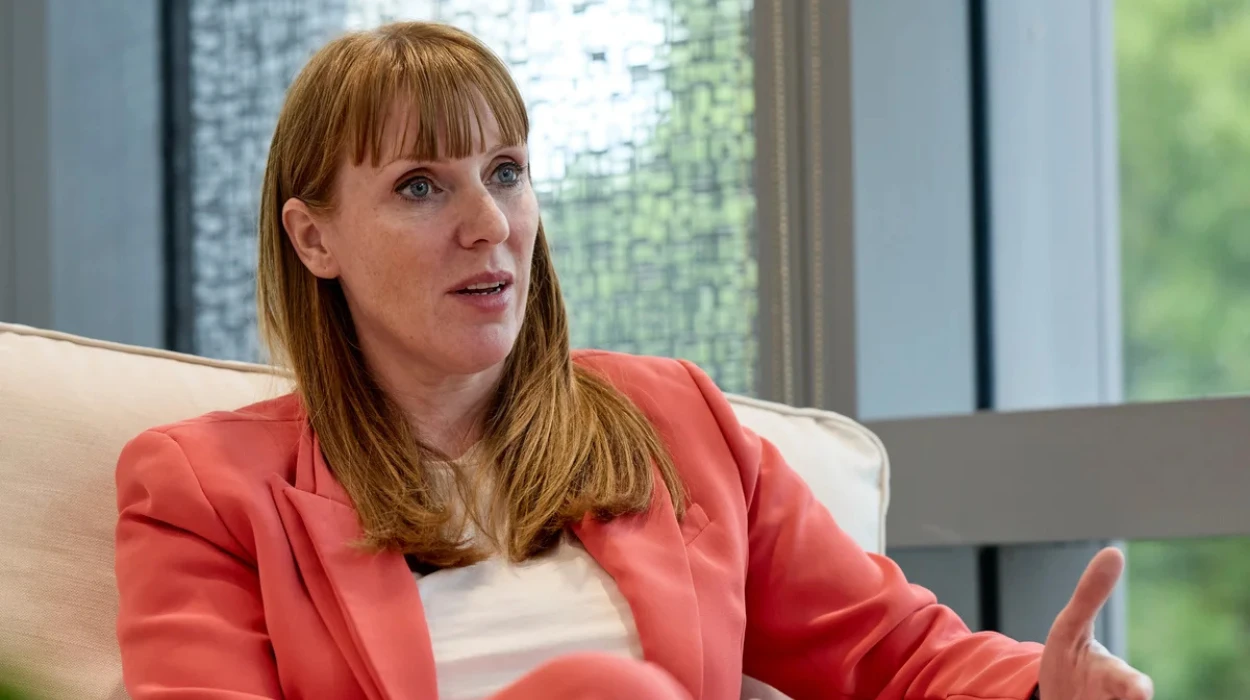UK (Parliament Politics Magazine) – Deputy PM Angela Rayner faces legal action after approving a 90MW Buckinghamshire data centre on green belt land without an environmental assessment.
As reported by The Guardian, Angela Rayner is facing a court challenge for overruling the council’s refusal to approve a hyperscale data centre on Buckinghamshire’s green belt near the M25.
Activists argue that no environmental assessment was conducted for the 90MW data centre. The project aligns with Labour’s push to triple UK computing capacity amid a global AI race.
The Buckinghamshire facility is relatively small in scale compared to the North Lincolnshire project, which will be 10 times larger. In contrast, Meta’s planned Louisiana complex will be more than 50 times bigger, part of Mark Zuckerberg’s vision for digital “superintelligence.”
What did campaigners say about the risks of Labour’s AI push?
Foxglove, backed by Global Action Plan, warned the data centre could raise electricity costs and called it “baffling” that no environmental review was carried out.
Oliver Hayes, campaigns head at Global Action Plan, criticised Angela Rayner’s “lack of meaningful scrutiny,” calling it a worrying precedent as more UK datacentres are planned.
He said,
“Are the societal benefits of chatbots and deepfakes really worth sacrificing progress towards a safe climate and dependable water supply?”
Mr Hayes stated,
“The government must reconsider its rash decision or risk an embarrassing reality check in court.”
Last month, Ms Rayner approved the project under the government’s “grey belt” policy, which allows development on green belt land judged to have limited ecological value.
Rosa Curling, co-executive director of Foxglove, welcomed Ms Rayner’s move,
saying,
“local people and businesses in Buckinghamshire will soon be competing with the power-guzzling behemoth to keep the lights on – which, as we’ve seen in the [United] States, usually means sky-high prices.”
What did Greystoke say about Angela Rayner’s green belt data centre decision?
Greystoke welcomed Angela Rayner’s approval, arguing the data centre “meets a vital national need for digital infrastructure, and will bring over £1bn of investment, transforming a former landfill site next to the M25.”
A spokesperson said,
“Modern datacentres play a key role in advancing scientific research, medical diagnostics and sustainable energy.”
They added,
“The data centre campus incorporates measures which benefit the environment, including appropriate building standards, solar panels and heat pumps.”
Why did Buckinghamshire council oppose the Iver data centre plan?
Buckinghamshire council rejected plans last June for a data centre on a former landfill in Iver. The authority said it would “constitute inappropriate development in the green belt” and harm the landscape, air quality and wildlife habitats.
Residents warned that 18-metre-high blocks would dwarf their surroundings and ruin views for ramblers, arguing the project should instead be built on brownfield sites.
Some locals argued the data centres would be intrusive and noisy while offering little employment. However, developer Greystoke insisted the scheme will deliver 230 jobs and support hundreds more indirectly.
A public review overturned the refusal on appeal, ruling that no environmental impact inquiry was required and granting consent for the scheme.
What did Peter Kyle say about datacentres and UK planning rules?
Technology Secretary Peter Kyle slammed what he called “archaic planning processes” that delay the implementation of new technology infrastructure.
He argued that
“the datacentres we need to power our digital economy get blocked because they ruin the view from the M25.”
Largest data centres in local councils
Slough is home to Europe’s largest cluster of data centres, cementing its role as a key UK tech hub. In nearby Iver, Buckinghamshire, ministers overturned a local rejection to approve a 90MW hyperscale facility.
North Lincolnshire is proposing an AI Growth Zone with a 435-acre data centre site using sustainable cooling. Meanwhile, Tees Valley plans a 500,000 sqm campus at Teesworks, set to be one of Europe’s largest.
UK’s grey belt strategy
Grey Belt refers to low-quality or unused Green Belt land now prioritised for housing. Under the 2024 NPPF update, development can happen here without “special circumstances,” but it must follow “Golden Rules” like affordable housing, green spaces, and better infrastructure.
With over 70,000 potential sites, it could deliver 2.5–4 million homes, supporting the goal of 1.5 million by 2030. However, not all land qualifies; protected areas like AONBs and SSSIs remain excluded.

